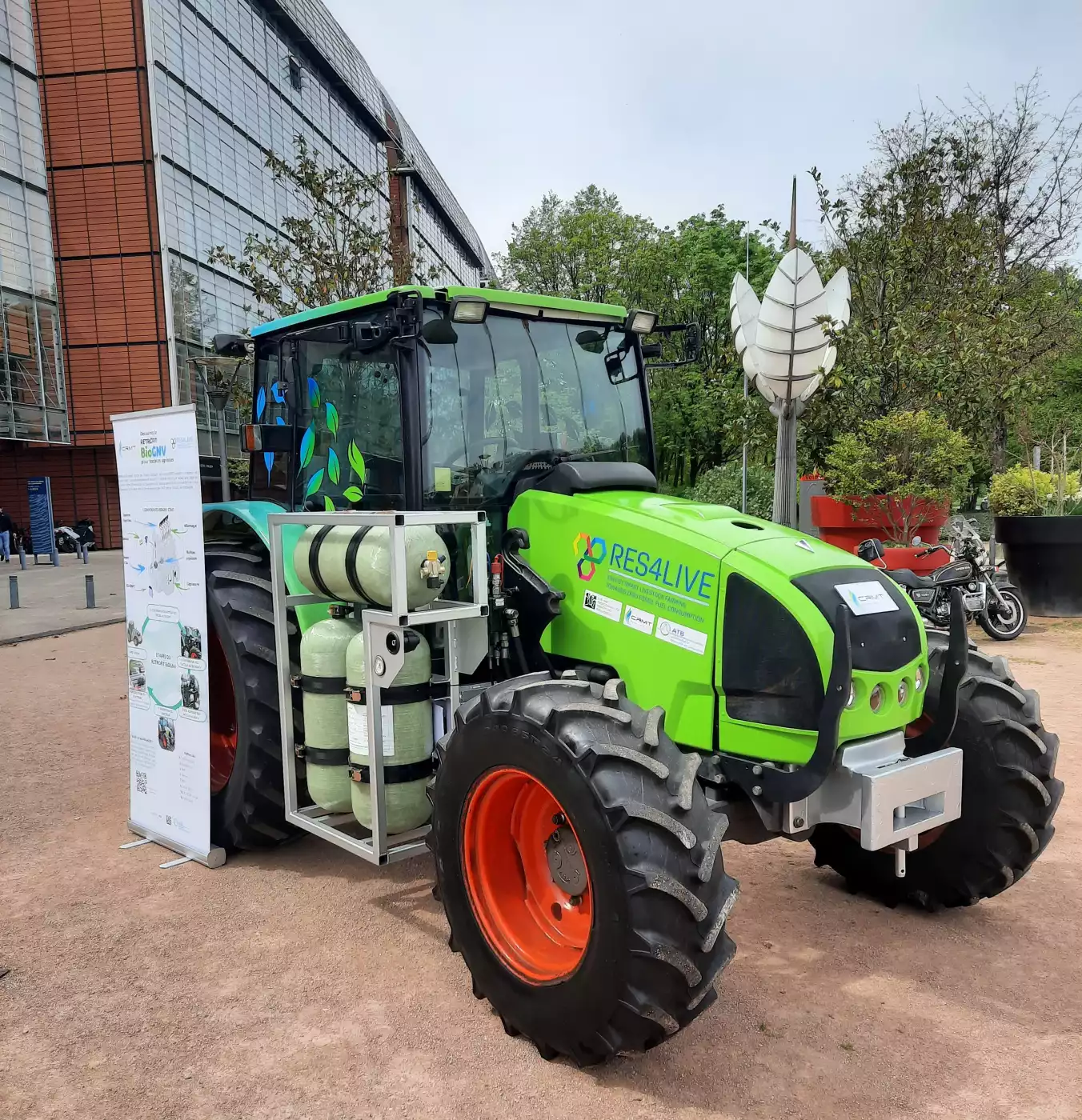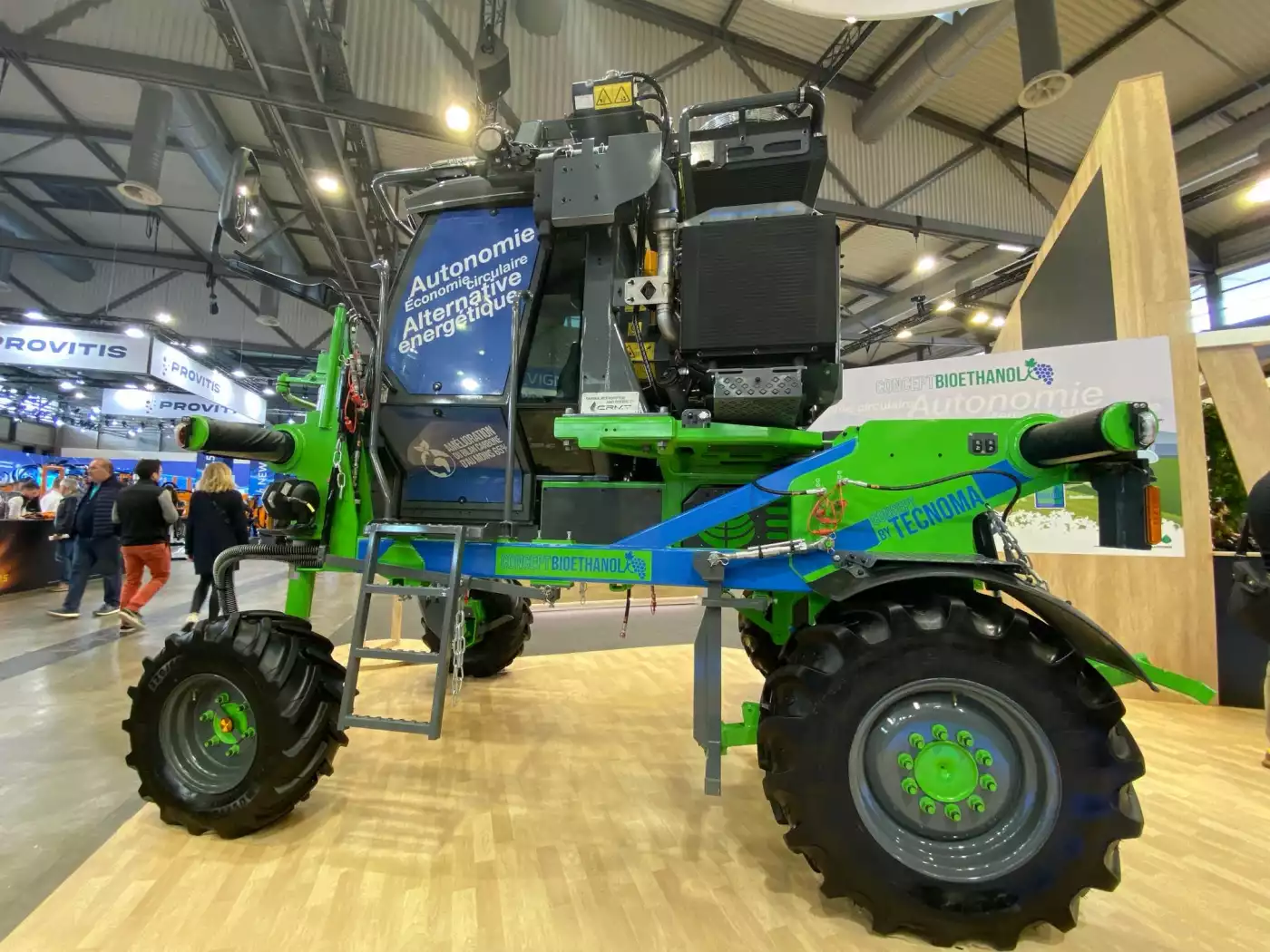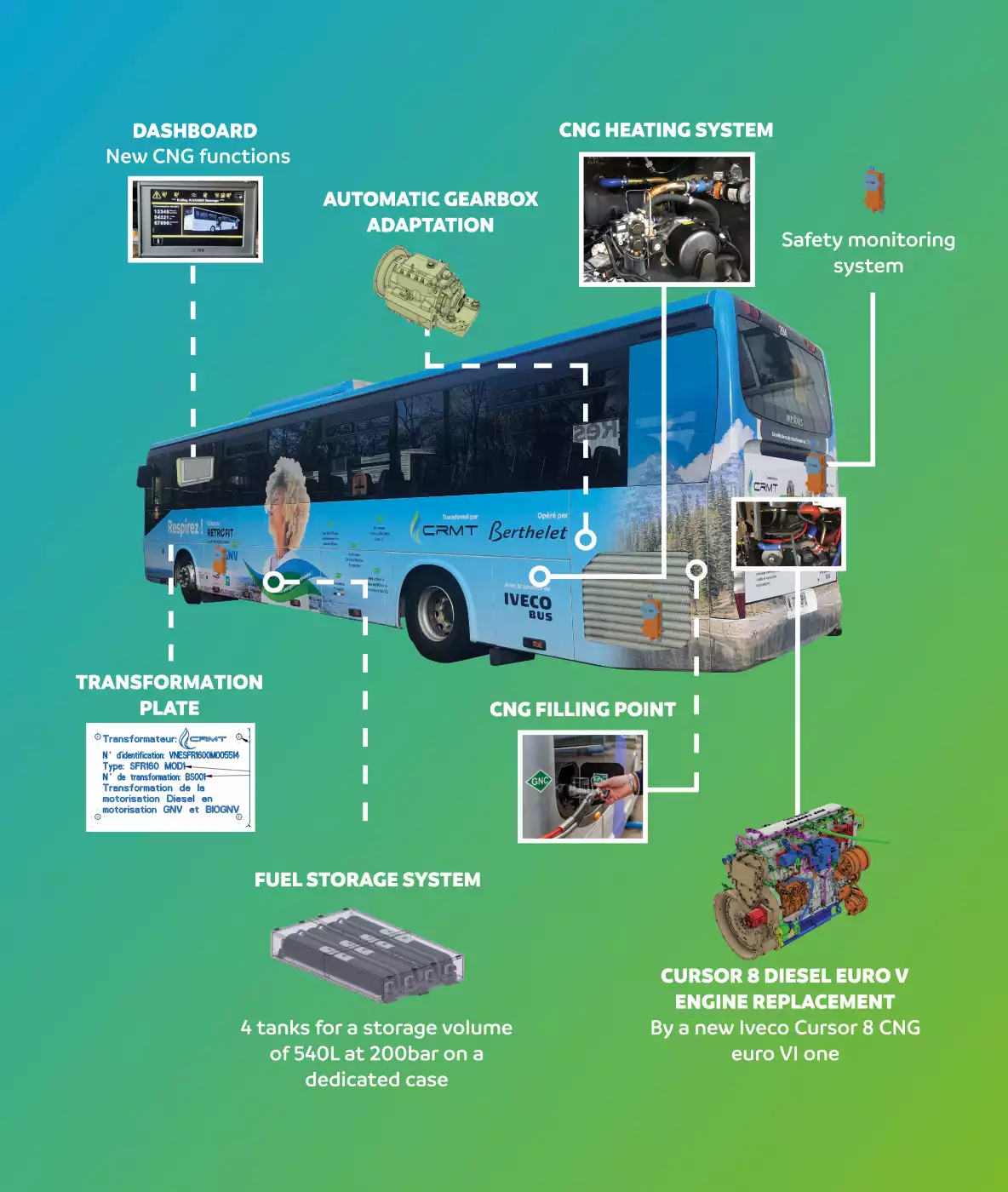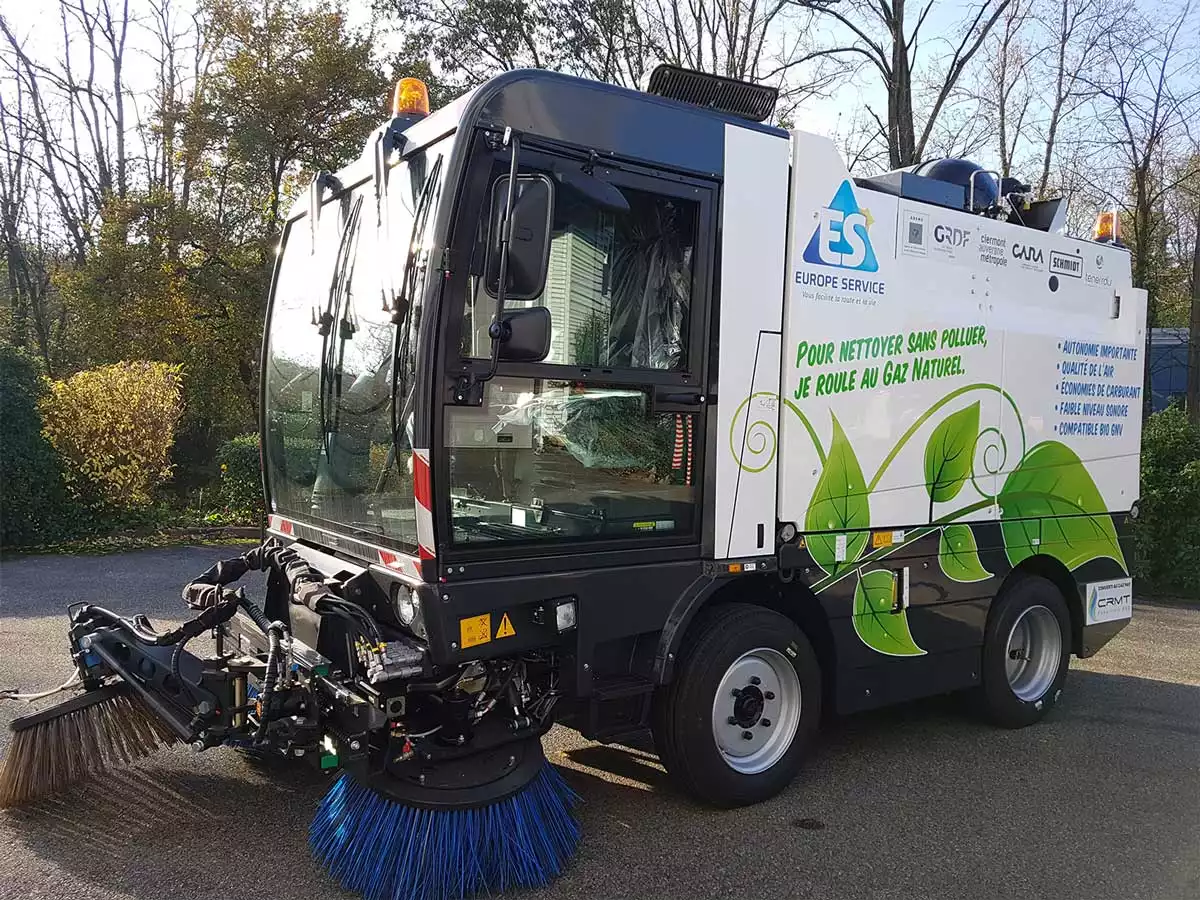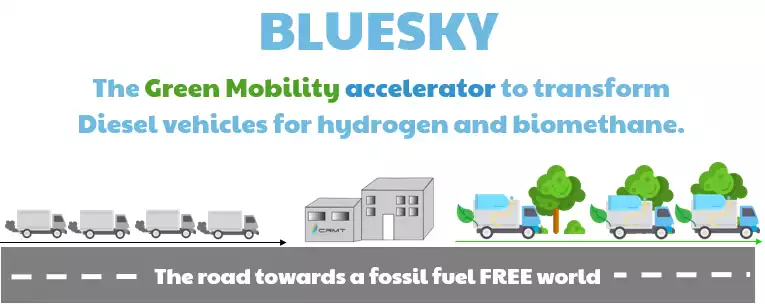Renewable Energy Sources for LIVEstock Project (RES4LIVE) is a project aimed at achieving carbon neutrality in the zero-emission farms of tomorrow.
RES4LIVE, A EUROPEAN PROJECT SUPPORTING THE ENERGY TRANSITION IN THE AGRICULTURAL SECTOR
RES4LIVE (Renewable Energy Sources for LIVEstock Project) is funded by the European Union under the Horizon 2020 programme, titled “Energy Smart Livestock Farming towards Zero Fossil Fuel Consumption.”
The goal of the project is to develop, adapt, and bring to market integrated and economically viable technological solutions tailored to livestock farms (pigs, dairy, poultry), in order to eliminate fossil fuel dependency in this sector. It also aims to create the technical, economic, social, and institutional conditions necessary for the large-scale replication of these innovative systems.
Among the project’s 18 partners, CRMT contributed its retrofitting expertise by converting an agricultural tractor to run on BioCNG. This vehicle now operates on biomethane produced from agricultural waste, providing a concrete example of circular economy in service of sustainable farming.
CRMT ACHIEVES A FIRST IN THE AGRICULTURAL SECTOR: RETROFITTING A TRACTOR TO RUN ON BIOMETHANE
To convert this CLAAS tractor, CRMT carried out the following operations:
-
Conversion of the engine to run on natural gas, including adaptation of the cylinder head and modification of the pistons
-
Integration of CRMT’s ECU (engine control unit) and adjustment of engine control strategies for BioCNG operation
-
Addition of an after-treatment system
-
Integration of a BioCNG storage system and tanks, designed by CRMT’s engineering team
This retrofitted tractor is now in operation on a farm in Germany, where it is being used in real-world conditions to collect data and assess its performance in daily agricultural use.
A TRANSFORMATION THAT PAVES THE WAY FOR THE DECARBONIZATION OF AGRICULTURE
This conversion offers a viable alternative for agricultural stakeholders, made possible by the expertise of CRMT’s teams.
Retrofitting diesel-powered agricultural machinery presents a unique opportunity for circular economy practices. Farmers can leverage their own biomethane production as fuel, reducing their reliance on fossil fuels while enhancing their energy autonomy.
